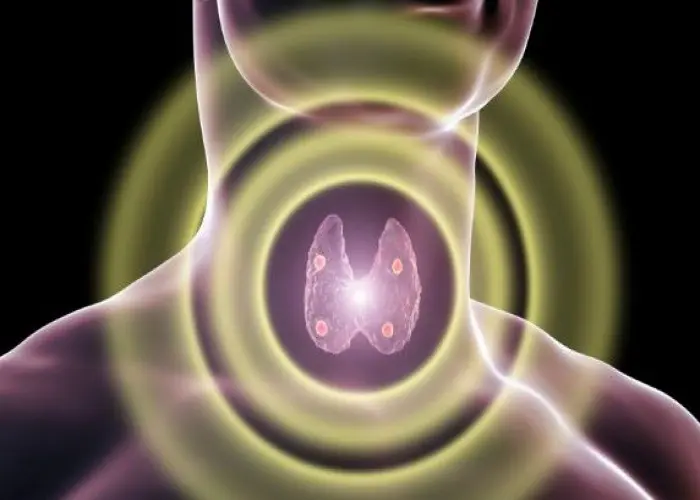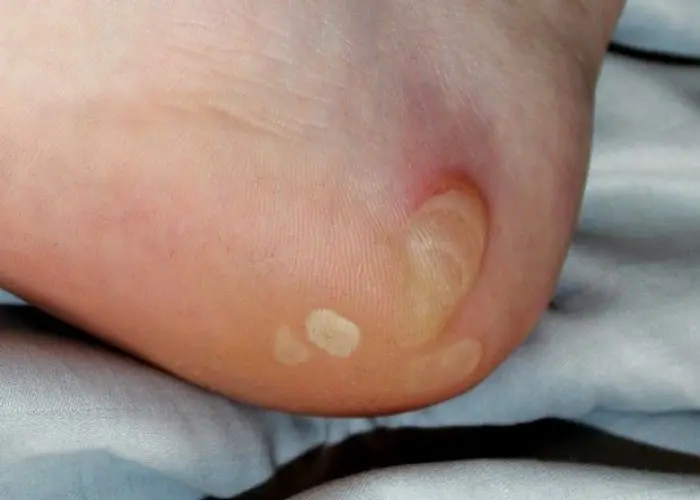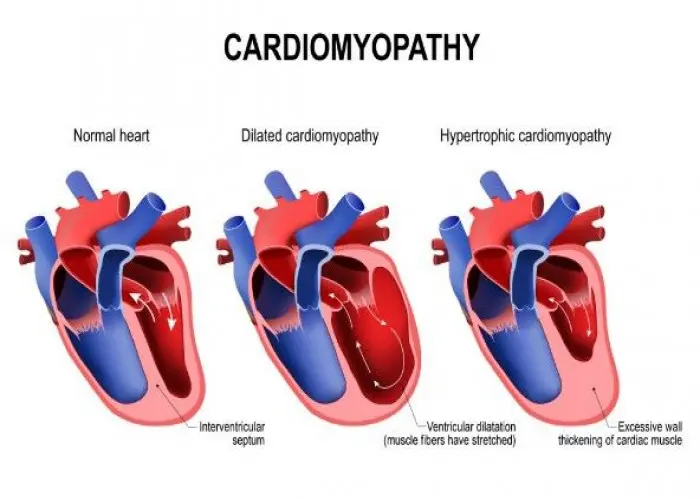 Welcome
Welcome
“May all be happy, may all be healed, may all be at peace and may no one ever suffer."
Chronic cough

Chronic cough is a persistent cough that lasts for more than 8 weeks. It can have many causes, including respiratory infections, asthma, gastroesophageal reflux disease (GERD), chronic obstructive pulmonary disease (COPD), allergies, and certain medications. Chronic cough can be accompanied by other symptoms, such as chest pain, shortness of breath, and wheezing. Diagnosis of chronic cough involves a physical examination, medical history, and possibly imaging tests or lung function tests. Treatment for chronic cough depends on the underlying cause and may involve lifestyle changes, medication, or other interventions. In some cases, chronic cough can be a sign of a more serious underlying condition, so it is important to see a healthcare provider if you are experiencing persistent coughing.
Research Papers
Disease Signs and Symptoms
- Runny nose
- Frequent throat clearing and sore throat
- A feeling of liquid running down the back of your throat (postnasal drip)
- Blood with cough
- Heartburn
- Shortness of breath (dyspnea)
- Hoarseness
- Sore throat
- Frequent throat clearing
- Chronic cough
Disease Causes
Chronic cough
An occasional cough is normal — it helps clear irritants and secretions from your lungs and prevents infection.
However, a cough that persists for weeks is usually the result of a medical problem. In many cases, more than one cause is involved.
The following causes, alone or in combination, are responsible for the majority of cases of chronic cough:
- Postnasal drip. When your nose or sinuses produce extra mucus, it can drip down the back of your throat and trigger your cough reflex. This condition is also called upper airway cough syndrome (UACS).
- Asthma. An asthma-related cough may come and go with the seasons, appear after an upper respiratory tract infection, or become worse when you're exposed to cold air or certain chemicals or fragrances. In one type of asthma (cough-variant asthma), a cough is the main symptom.
- Gastroesophageal reflux disease (GERD). In this common condition, stomach acid flows back into the tube that connects your stomach and throat (esophagus). The constant irritation can lead to chronic coughing. The coughing, in turn, worsens GERD — a vicious cycle.
- Infections. A cough can linger long after other symptoms of pneumonia, flu, a cold or other infection of the upper respiratory tract have gone away. A common but under-recognized cause of a chronic cough in adults is pertussis, also known as whooping cough. Chronic cough can also occur with fungal infections of the lung, tuberculosis (TB) infection or lung infection with nontuberculous mycobacterial organisms.
- Chronic obstructive pulmonary disease (COPD). COPD, a chronic inflammatory lung disease that causes obstructed airflow from the lungs, includes chronic bronchitis and emphysema. Chronic bronchitis can cause a cough that brings up colored sputum. Emphysema causes shortness of breath and damages the air sacs in the lungs (alveoli). Most people with COPD are current or former smokers.
- Blood pressure drugs. Angiotensin-converting enzyme (ACE) inhibitors, which are commonly prescribed for high blood pressure and heart failure, are known to cause chronic cough in some people.
Less commonly, chronic cough may be caused by:
- Aspiration (food in adults; foreign bodies in children)
- Bronchiectasis (damaged, dilated airways)
- Bronchiolitis (inflammation of the very small airways of the lung)
- Cystic fibrosis
- Laryngopharyngeal reflux (stomach acid flows up into the throat)
- Lung cancer
- Nonasthmatic eosinophilic bronchitis (airway inflammation not caused by asthma)
- Sarcoidosis (collections of inflammatory cells in different parts of your body, most commonly the lungs)
- Idiopathic pulmonary fibrosis (chronic scarring of the lungs due to an unknown cause)
Disease Prevents
Disease Treatments
Determining the cause of chronic cough is crucial to effective treatment. In many cases, more than one underlying condition may be causing your chronic cough.
If you are currently smoking, your doctor will discuss with you your readiness to quit and provide assistance to achieve this goal.
If you're taking an ACE inhibitor medication, your doctor may switch you to another medicine that doesn't have cough as a side effect.
Medications used to treat chronic cough may include:
- Antihistamines, corticosteroids and decongestants. These drugs are standard treatment for allergies and postnasal drip.
- Inhaled asthma drugs. The most effective treatments for asthma-related cough are corticosteroids and bronchodilators, which reduce inflammation and open up your airways.
- Antibiotics. If a bacterial, fungal or mycobacterial infection is causing your chronic cough, your doctor may prescribe medications to address the infection.
- Acid blockers. When lifestyle changes don't take care of acid reflux, you may be treated with medications that block acid production. Some people need surgery to resolve the problem.
Cough suppressants
During the time your doctor is determining the reason for your cough and beginning treatment, your doctor may also prescribe a cough suppressant to try to speed your symptom relief.
Over-the-counter cough and cold medicines are intended to treat the symptoms of coughs and colds, not the underlying disease. Research suggests that these medicines haven't been proved to work any better than inactive medicine (placebo). More important, these medications have potentially serious side effects, including fatal overdoses in children younger than 2 years old.
Don't use over-the-counter medicines, except for fever reducers and pain relievers, to treat coughs and colds in children younger than 6 years old. Also, consider avoiding use of these medicines for children younger than 12 years old.
Disease Diagnoses
Disease Allopathic Generics
-
Paracetamol
Medicines with paracetamol for minor pain.
1 each 3 times a day after meals.
-
Aspirin
1 pill 3 times a day after meals.
-
Aspirin
2 cc should be injected into the flesh daily.
-
Sulphamethoxazole + Trimethoprim
Adults 2 pills in the morning 2 pills in the evening before meals 5-7 days. Drink plenty of water while taking this medicine.
-
Pseudoephedrine + Guaiphenasine + Triprolidine
Cough medicine.
2 spoons 3 times a day for 10 days.
-
Salbutamol
Medicines containing salbutamol for breathing problems.
Adults 4mg 3 times a day.
2 spoons 3 times a day.
-
Theophylline
1 pill 3 times a day or 1/2 pill 1 time at night or liquid 2 spoons 3 times a day.
-
Multivitamin & Multimineral
The patient can be given multivitamin + mineral supplements.
Take 1 pill daily after breakfast.
Disease Ayurvedic Generics
Disease Homeopathic Generics
Disease yoga
Chronic cough and Learn More about Diseases

Hypoparathyroidism

Huntington's disease

Breast cysts

Achalasia

Epidermolysis bullosa

Roseola

Dilated cardiomyopathy

Somatic symptom disorder
Chronic cough, Chronic cough treatment, দীর্ঘস্থায়ী কাশি
To be happy, beautiful, healthy, wealthy, hale and long-lived stay with DM3S.
